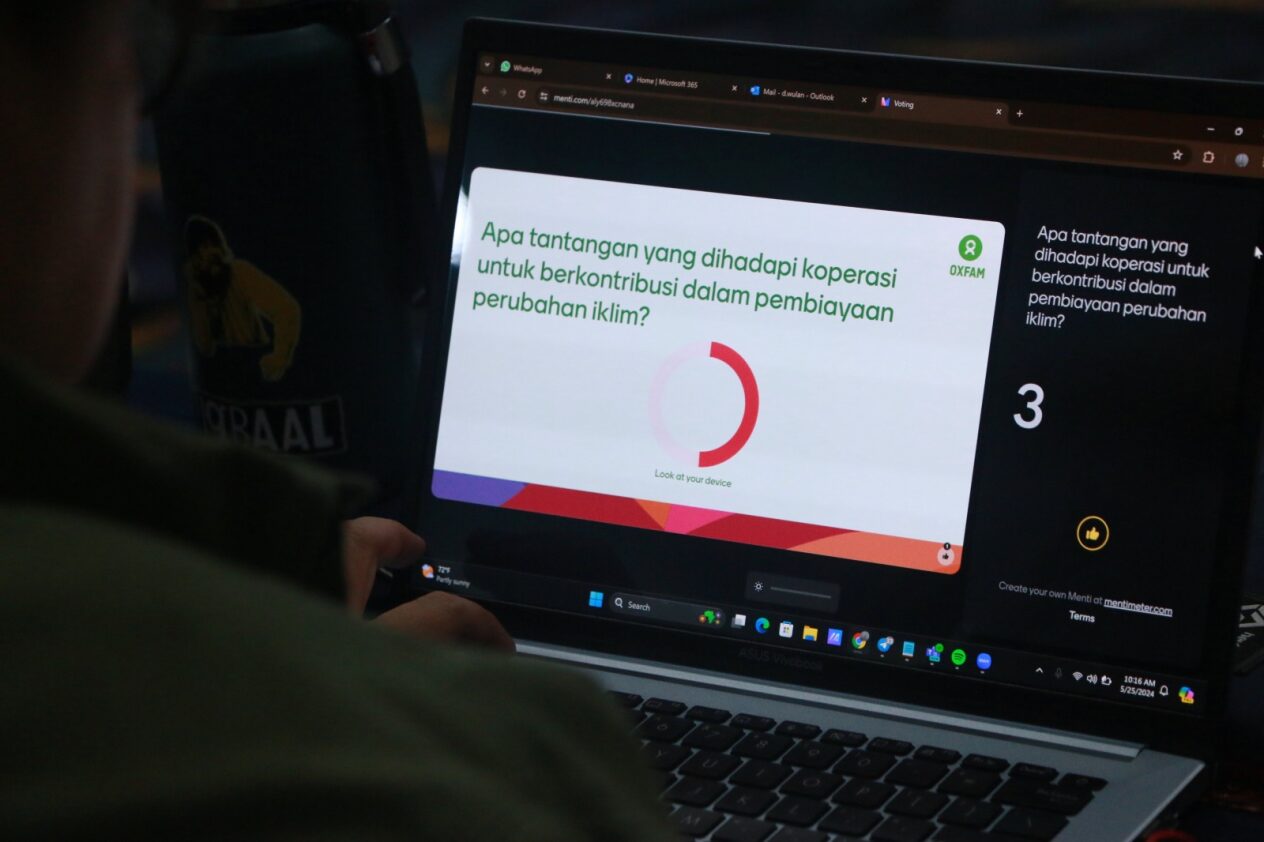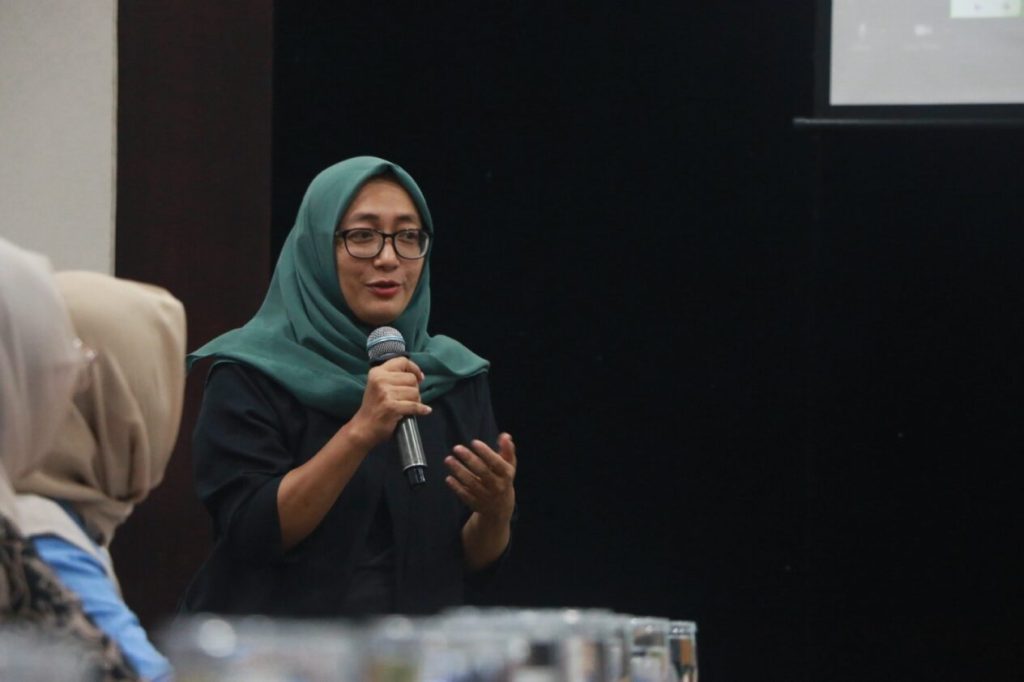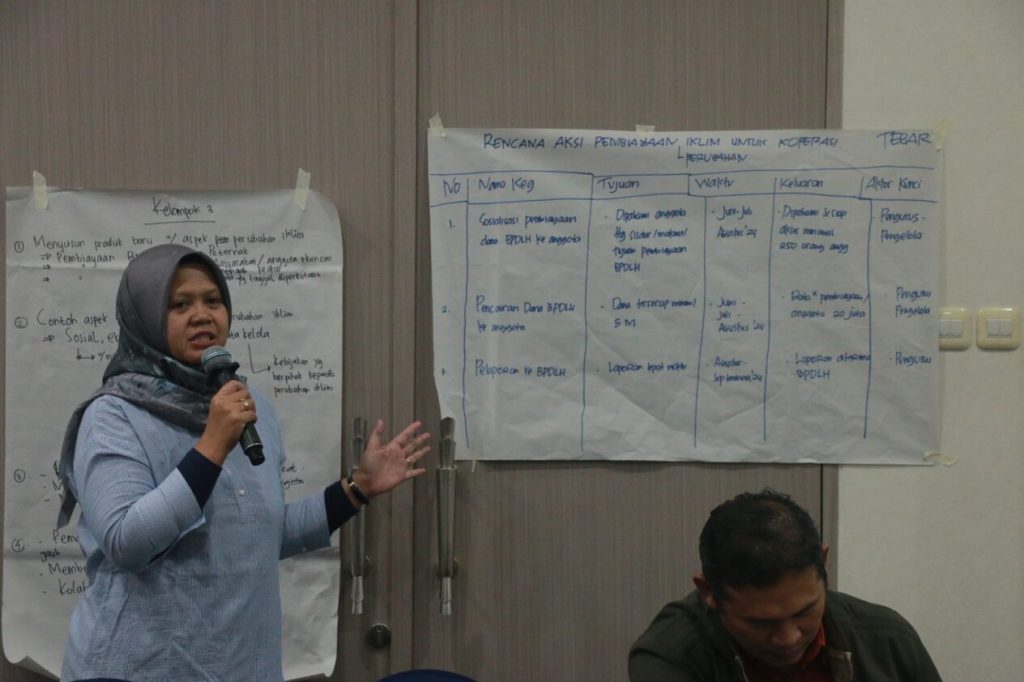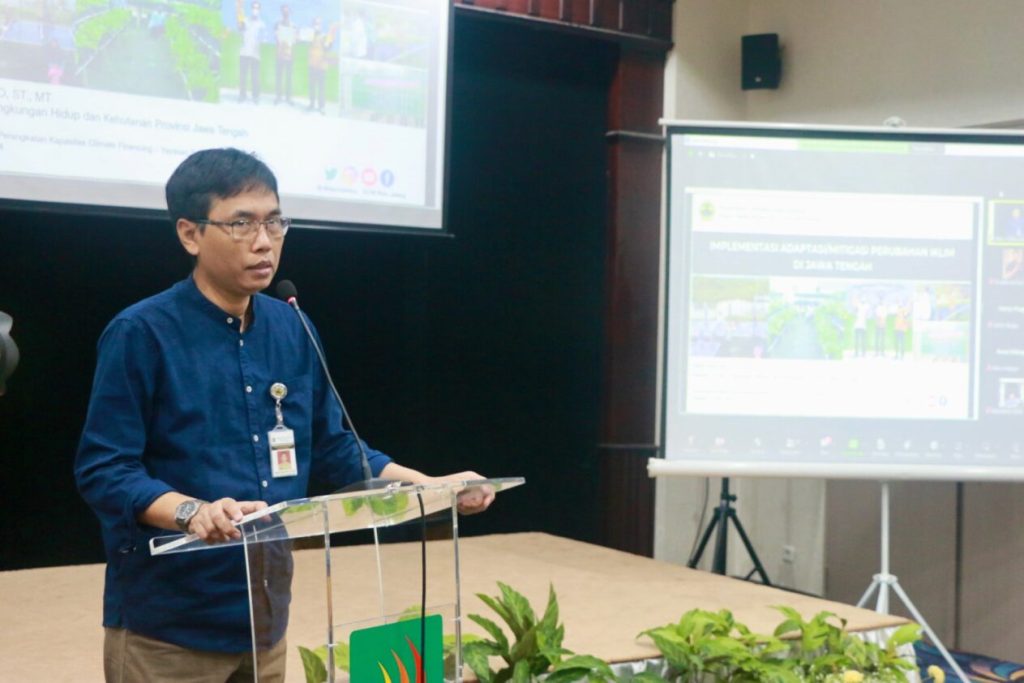Training on Implementing Climate Financing for Cooperatives

Cooperatives as financial institutions that operate at the grassroots level, most of their members are vulnerable to risks resulting from climate change. Realizing this vulnerability, the Yayasan Rumah Energi (YRE) held training on the Implementation of Climate-Friendly Financial Aspects (Climate Financing) for Cooperatives at the end of May. This training targets four cooperatives that are assisted by the Green Cooperative Adaptation Readiness (GENCAR) project and several other cooperatives that are also present online.
The implementation of Climate Financing for cooperatives is intended to encourage cooperative institutions to act as agents of change and can be a case study for the Ministry of Cooperatives and SMEs (Kemenkop UKM), the Ministry of Environment and Forestry (KLHK), the Fiscal Coordinating Board (BKF) of the Ministry of Finance, and the Management Body Environmental Fund (BPDLH), as well as related agencies at the Provincial and Regency/City levels in implementing the Green Cooperative concept.

Oxfam Indonesia Fair Finance Program Manager Dia Mawesti, who guided the training, started by delivering material about climate change and its overall impact on life. He then divided the participants into four groups to discuss several important questions, so that participants could identify the impacts of climate change that are being felt, what efforts have been made and how effective they are, where the funding sources come from, as well as lessons learned from the efforts that have been made.
From these important questions, cooperative members at the grassroots level are very vulnerable to being affected by climate change, such as drought due to long droughts, high rainfall which causes floods, and decreased productivity and crop failure. Participants also revealed the efforts made to overcome climate change impacts and how funding for these initiatives was obtained. Based on the identification of impacts, efforts, and financing, participants concluded that there needs to be multi-stakeholder initiatives and support as well as appropriate technological interventions to respond to the impacts of climate change.
This training focuses on ensuring cooperatives have the knowledge to implement climate action and access climate finance. Cooperatives have social capital, namely the number of members reaches thousands, so it is very possible for cooperatives to mobilize climate action among their members, for example by inviting each member to plant at least one tree. A similar initiative has been implemented by the Wana Makmur Lestari Sharia Cooperative in Lombok with its members who planted thousands of bamboo trees. Apart from being a conservation program, bamboo is also a new commodity that has economic value. Meanwhile, at the policy level, cooperatives can take a role, for example by committing to not providing financing for businesses that tend to damage the environment and do not pay attention to sustainability.

Apart from exploring the potential for cooperatives to implement climate action including climate financing, it is also necessary to pay attention to the following things, such as the importance of improving cooperative governance, strengthening regulations and policies to support climate change adaptation and mitigation, increasing the capacity and internal resources of cooperatives, ensuring business sustainability. financed and managed, as well as strengthening multi-party collaboration.
In the final group discussion session, participants were given the task of discussing how to integrate aspects of climate financing in cooperative business models, identifying examples of climate financing aspects and criteria, cooperative commitment, and capacity, as well as identifying gaps and support needed in climate change financing. As a result, most participants identified that biogas has the potential that be applied to integrating climate financing aspects in cooperative business models. Meanwhile, regarding the commitment and capacity of cooperatives in climate financing, participants were optimistic that cooperatives have a strategic role in mobilizing climate action, especially in terms of financing.
At this training activity, the Head of the Central Java Province LHK Service, Widi Hartanto, was also present and expressed his hopes for cooperatives to support the Climate Village Program.

“I hope, especially that the cooperatives present today can support the Climate Village Program that has been launched by the government because collaboration between institutions or institutions is very important and necessary to deal with climate change.”

